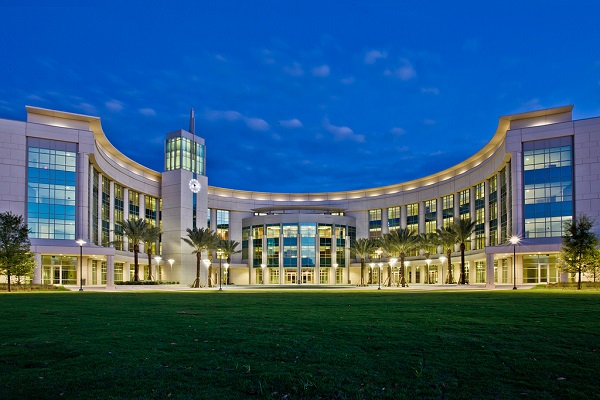University of Central Florida: New $1.25 Million Research Project Will Map Materials at the Nanoscale
AUniversity of Central Florida researcher will lead a recently announced $1.25 million project to map and manipulate materials at the nanoscale.
The project’s funding is through the Gordon and Betty Moore Foundation, a philanthropic foundation established by Intel co-founder Gordon Moore and his wife Betty Moore to support scientific discovery, environmental conservation, patient care improvements and more.
Laurene Tetard, an associate professor and associate chair of UCF’s Department of Physics and a researcher with the NanoScience Technology Center, is the project’s investigator. She is one of 16 researchers from across the U.S., including from Harvard University, Princeton University and Cornell University, selected to receive the five-year funding award.
Tetard’s research focuses on advancing nanoscale imaging and spectroscopy tools, including atomic force microscopy, to unlock new capabilities of materials at the nanoscale. The work will advance the fundamental understanding of materials behavior at the nanoscale. It can lead to new catalysts and other compounds that could be applicable in a range of areas including quantum science, renewable energy, life sciences and sustainability.
For example, the researchers are working on manipulating the chemical compound hexagonal boron nitride at the nanoscale level to have a defect that allows it to capture carbon from greenhouse gases, such as methane, and release value-added byproducts.
Some of her group’s latest work in this area was published recently in the journal ACS Nano Letters. In the study, the researchers showed that by creating nanoscale defects in hexagonal boron nitride, they could functionalize the material for potential applications including in sensing, catalysis, optoelectronics, and quantum computing.
The new funding will support Tetard’s continued research into new ways to functionalize materials.
“Being selected for this program by the Gordon and Betty Moore Foundation is a great opportunity to deepen our understanding of chemical processes taking place at very small scales in a way that could help us develop better materials for greenhouse gases capture and conversion, sensing and more,” Tetard says. “It is exciting to think of the research the team will be able to carry out with this support from the foundation. I am also eager to launch new projects at the departmental and university level, which will help our students connect with researchers in academia, in industry and at national laboratories, especially to strengthen our work on making physics a more diverse and inclusive community.”
The foundation will support the researchers’ work by providing equipment grants and by hosting convenings to share new ideas and encourage collaborations. The foundation says central to this initiative is supporting the investigators as they strive to make their research groups inclusive and advance equity in their departments.
“It’s critical to support not just those who have had opportunities and resources to excel, but to support adoption of practices that will expand access to these opportunities in the future,” says Catherine Mader, program officer in the Experimental Physics Investigators Initiative of the foundation. “Helping these researchers find resources and adopt practices to enhance equity and inclusion is an important way the foundation can help all group members produce their best science.”
Tetard received her doctorate in physics from the University of Tennessee, Knoxville, and joined UCF’s NanoScience Technology Center and Department of Physics, part of UCF’s College of Sciences, in 2013. She also has been a recipient of the U.S. National Science Foundation’s CAREER grant, an award given to early career scientists and engineers with high promise of leading major advances in their respective fields and who will serve as academic role models.

